LOS BAÑOS, PHILIPPINES—Thirty agricultural leaders from across Southeast Asia gathered at the Southeast Asian Regional Center for Graduate Study and Research in Agriculture (SEARCA) on 16-20 June 2025 for the Training-Workshop on Transformational Agricultural Innovation Systems for the New Future (TrAInS). Over five days, researchers, policymakers, extension officers, and industry experts from five countries exchanged insights and designed programs to accelerate sustainable innovation in the region's food systems.
"The ASEAN food system has been labeled as broken and we have seen this happen during the pandemic, thus, it needs to be fixed," said Dr. Virginia Cardenas, TrAInS technical coordinator. Dr. Cardenas is also a former SEARCA Deputy Director, former Dean of the College of Public Affairs, and former Vice Chancellor of the University of the Philippines Los Baños (UPLB).
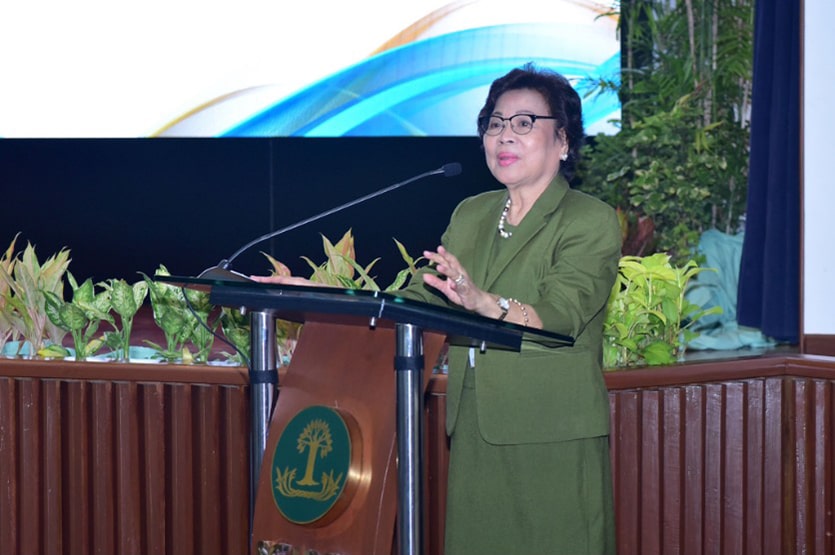 Dr. Virginia Cardenas gives an overview of the training-workshop at the start of the program.
Dr. Virginia Cardenas gives an overview of the training-workshop at the start of the program.
She highlighted the training-workshop's timeliness in empowering the participants with the knowledge and tools needed to navigate the complexities of modern agriculture while fostering sustainable, transformational agricultural innovation systems (AIS).
Dr. Nur Azura binti Adam, SEARCA Deputy Director for Programs, also delivered the welcome message on behalf of Center Director Dr. Mercedita Sombilla.
"AIS play a pivotal role in incremental change. It involves a dynamic networks of actors, institutions, policies, and practices that come together to co-create, share and scale innovations that matter more than just technology adoption," she explained.
Co-organized with the Center for Research on Innovation and Science Policy (CRISP) of India and the Asia-Pacific Islands Rural Advisory Services Network (APIRAS), the training served as a platform for participants to collaboratively address the pressing agricultural challenges. They learned to design innovative, transformative programs that can enhance AIS in the region.
The participants were guided by key resource persons from different institutions such as the Philippine Department of Agriculture, Nestlé Philippines, International Union for Conservation of Nature (IUCN), SEARCA, UPLB, International Rice Research Institute (IRRI), International Food Policy Research Institute (IFPRI), and CRISP.
The event opened with sessions exploring the region's agricultural policy and regulatory landscape, alongside emerging AIS concepts and performance assessment tools. Participants engaged in collaborative workshops to identify key barriers and enablers of innovation, setting the tone for a week of intensive learning and exchange.
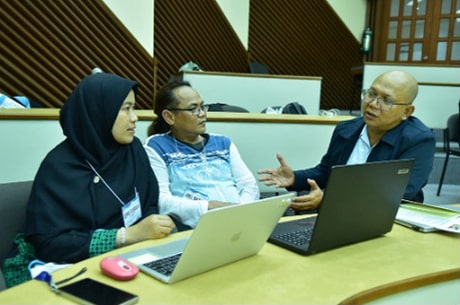
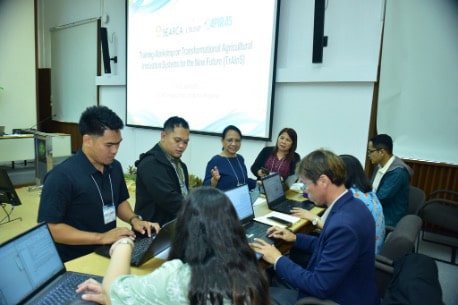
Participants form sub-groups for various workshops and activities on agricultural innovation systems.
On the second day, discussions focused on institutional governance, market-driven technology under the Agriculture 5.0 framework, and the integration of SMART agriculture for resilience and sustainability. Industry insights were shared by Mr. Arthur Baria, former Vice President for Agricultural Services at Nestlé Philippines and Mr. Angga Pradesha, Senior Scientist at IFPRI. Participants also explored the strategic use of knowledge products in agricultural extension.
A highlight of the program was the field visit to Bukid Amara in Lucban, Quezon Province on the third day. Participants observed firsthand the practical application of SMART agriculture and gained insights into the growing field of farm tourism.
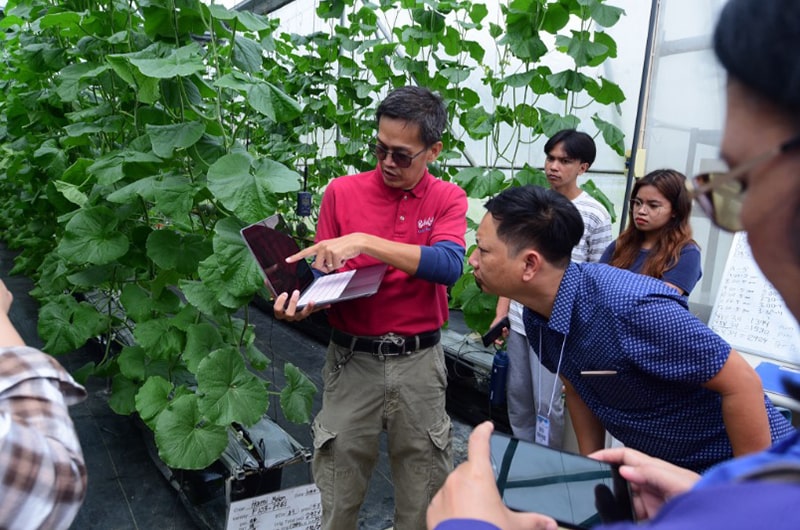 Mr. Michael Caballes, Bukid Amara's owner and chief farmer, shares their innovative and science-based agricultural practices in their farm.
Mr. Michael Caballes, Bukid Amara's owner and chief farmer, shares their innovative and science-based agricultural practices in their farm.
The fourth day featured sessions on knowledge product development and digital communication strategies led by Dr. Winifredo Dagli from the UPLB College of Development Communication. This was followed by sessions on futures thinking and scenario planning exercises facilitated by Dr. Hadji Jalotjot and Dr. Cardenas. Dr. Dindo Campilan, IUCN Regional Director for Asia and Hub Director for Oceania, also shared insights on the agriculture sector's evolving competency requirements.
The sessions and activities culminated in the formulation and presentation of actionable roadmaps and program interventions designed to transform agricultural innovation systems in the participants' respective countries, along with the finalization of their action plans.
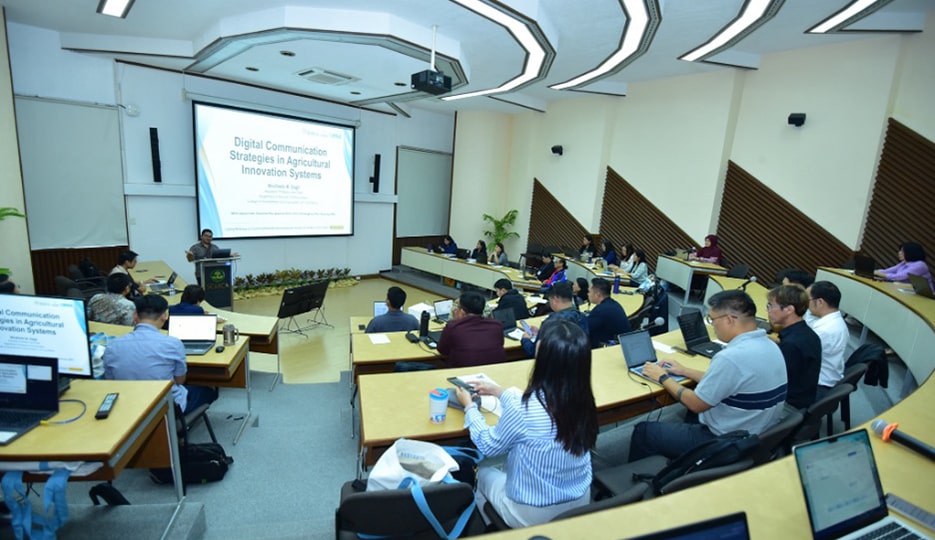 Dr. Winifredo Dagli hosts a session on Digital Communication Strategies in AIS.
Dr. Winifredo Dagli hosts a session on Digital Communication Strategies in AIS.
During the closing ceremony, Dr. Cipto Nugroho, a researcher from Indonesia's National Research and Innovation Agency (BRIN), shared his experience.
"This training gave me a lot of new insights because I personally worked more on the technical side. With this program, I learned more about connecting our research to the stakeholders," he remarked.
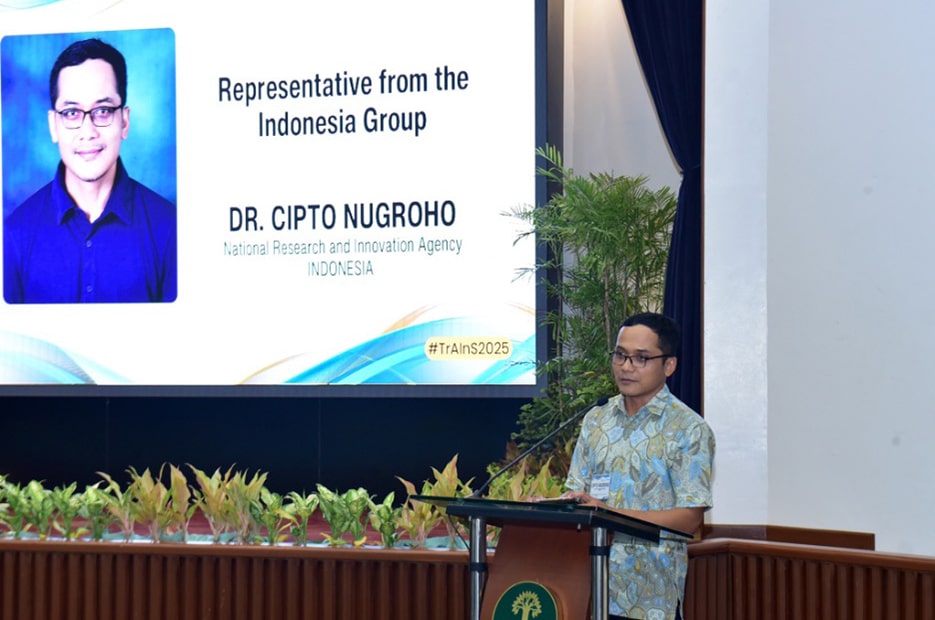 Dr. Cipto Nugroho represents the Indonesian participants in sharing their takeaways from the program.
Dr. Cipto Nugroho represents the Indonesian participants in sharing their takeaways from the program.
He also expressed eagerness to collaborate with other participants beyond the program and expressed gratitude to the entire training-workshop team.
Assoc. Prof. Joselito Florendo, SEARCA Deputy Director for Administration, congratulated the participants on successfully completing the five-day program and for becoming part of the growing network of SEARCA training alumni.
Dr. Cardenas and Dr. Nova Ramos, Head of SEARCA's Training for Development Unit (T4DU), gave their closing messages, both encouraging the participants to apply their learnings and share them with their colleagues in their home institutions.